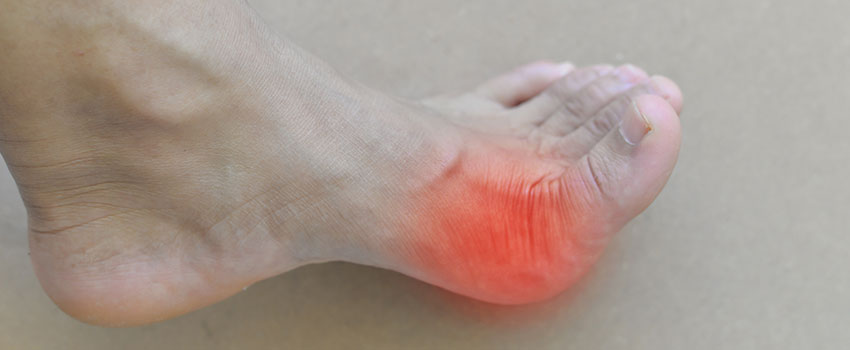What You Should Know About Gout

If you have been dealing with sudden, sharp pain and redness in your joints, you likely have gout. This kind of joint pain can flare up in the night and last for weeks at a time, making gout uncomfortable at best and debilitating at worst.
Thankfully, there are steps you can take to better understand your gout and treat your gout symptoms.
Read on as our team at AFC Urgent Care Fountain City explains.
What gout is: Gout is a form of arthritis, highlighted by sudden burning sensations, joint swelling and stiffness. Gout “attacks” can cause serious damage to joints, and they usually begin in the big toe because of the amount of pressure it typically handles from walking and standing.
Gout is usually caused by: Gout is caused by an excess amount of uric acid in the bloodstream, which is medically known as Hyperuricemia. The body produces uric acid during the breakdown of purines, which are chemical compounds found in high amounts in certain foods such as meat, poultry and seafood.
Typical gout symptoms: Pain, swelling, redness and/or heat of the affected joint. Gout flares start suddenly and can last for days or weeks, followed by a long period of remission.
Here’s what to do: If you’re experiencing a flare, take some OTC anti-inflammatory pills like ibuprofen to help with the swelling and pain. Make sure to avoid aspirin, though, as it can actually raise the level of uric acid in the bloodstream.
What to do next: After the pain has been reduced, make sure you monitor the foods you are eating. Purine-rich foods, like the ones we mentioned previously, will induce gout flare-ups, in addition to beer and hard liquor.
What to do after: Don’t hesitate to visit our AFC center if these treatment options don’t work, or if your gout flare-up lasts between 48 hours and a week.
Action steps to take: One of the best things you can do to prevent future gout flare-ups from happening is by maintaining healthy habits, such as losing weight, limiting purine-rich foods, staying physically active and protecting your joints.
Doctor recommendations: Many people can successfully self-diagnose themselves with gout, but don’t hesitate to visit our AFC center if you are unsure if your symptoms are signs of gout. To confirm the diagnosis, your doctor will likely perform a physical exam and take a sample of fluid from your joint to find uric acid crystals. In some circumstances, doctors will perform a blood test to see how much uric acid is built up in your bloodstream.
Our AFC Urgent Care Fountain City team is here for all your non-emergency medical needs! Don’t hesitate to visit us today.
